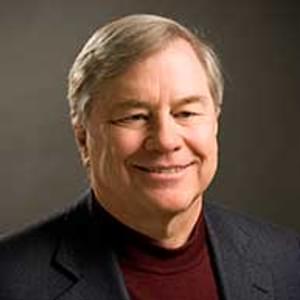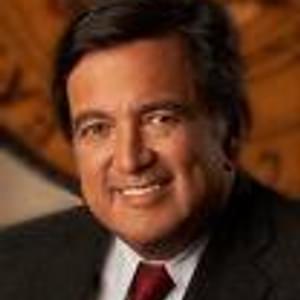Co-sponsored by the National Council of Synagogues and the Bishops’ Committee for Ecumenical and Interreligious Affairs of the National Conference of Catholic Bishops1
“A Sanhedrin that puts one person to death once in seven years is called destructive. Rabbi Eliezer ben Azariah says: Or even once in seventy years. Rabbi Tarfon and Rabbi Akiba say: Had we been the Sanhedrin, none would ever have been put to death.” Mishnah Makkot, 1:10 (2nd Century, C.E.)
“A sign of hope is the increasing recognition that the dignity of human life must never be taken away, even in the case of someone who has done great evil. Modern society has the means of protecting itself, without definitively denying criminals the chance to reform. I renew the appeal for a consensus to end the death penalty, which is both cruel and unnecessary.” Pope John Paul II, January 27, 1999, St. Louis, Missouri
Almost two millennia separate these two statements, which together embody the collective wisdom and moral insights of our two ancient religious traditions, Rabbinic Judaism and Roman Catholicism, on a burning issue of our time, capital punishment. At our meeting of March 23, 1999, we religious leaders, Catholic and Jewish, probed and shared our own traditions with each other.2 The result was a remarkable confluence of witness on how best in our time to interpret the eternal word of God.
Both traditions begin with an affirmation of the sanctity of human life. Both, as the above statements imply, acknowledge the theoretical possibility of a justifiable death penalty, since the Scriptures mandate it for certain offenses3. Yet both have, over the centuries, narrowed those grounds until, today, we would say together that it is time to cease the practice altogether. To achieve this consensus we analyzed the statements of our respective bodies going back to the late 1970’s and we agree that in them we found a growing conviction that the arguments offered in defense of the death penalty are less than persuasive in the face of the overwhelming mandate in both Jewish and Catholic traditions to respect the sanctity of human life.
Some would argue that the death penalty is needed as a means of retributive justice, to balance out the crime with the punishment. This reflects a natural concern of society, and especially of victims and their families. Yet we believe that we are called to seek a higher road even while punishing the guilty, for example through long and in some cases life-long incarceration, so that the healing of all can ultimately take place.
Some would argue that the death penalty is needed as a deterrent to crime. Yet the studies that lie behind our statements over the years have yet to reveal any objective evidence to justify this conclusion. Criminals tend to believe they will escape any consequences for their behavior, or simply do not think of consequences at all, so an escalation of consequences is usually irrelevant to their state of mind at the time of the crime.
Some would argue that the death penalty will teach society at large the seriousness of crime. Yet we say that teaching people to respond to violence with violence will, again, only breed more violence.
Some would argue that our system of justice, trial by jury, can ensure that capital punishment will be meted out equitably to various groups in society and that the innocent will never be convicted. This is the least persuasive argument of all. Statistics, however weighted, indicate that errors are made in judgement and convictions. Recent scientific advances, such as DNA testing, may reveal that persons on death row, despite seemingly “overwhelming” circumstantial evidence, may in fact be innocent of the charges against them. Likewise, suspiciously high percentages of those on death row are poor or people of color4. Our legal system is a very good one, but it is a human institution. Even a small percentage of irreversible errors is increasingly seen as intolerable. God alone is the author of life.
The strongest argument of all is the deep pain and grief of the families of victims, and their quite natural desire to see punishment meted out to those who have plunged them into such agony. Yet it is the clear teaching of our traditions that this pain and suffering cannot be healed simply through the retribution of capital punishment or by vengeance. It is a difficult and long process of healing which comes about through personal growth and God’s grace. We agree that much more must be done by the religious community and by society at large to solace and care for the grieving families of the victims of violent crime.
Recent statements of the Reform and Conservative movements in Judaism, and of the U.S. Catholic Conference sum up well the increasingly strong convictions shared by Jews and Catholics on the evil that is capital punishment:
“In biblical times, capital punishment was a search for justice when justice seemed impossible to reach. As the rabbis did years ago when they considered the use of the death penalty, let us take the time to ask ourselves some relevant questions. Is justice reached when we are taking the chance of killing an innocent person? Is justice reached when we are discriminating against minorities in our death sentences? ‘See that justice is done,’ the prophet Zechariah proclaims. If justice is not done by legalizing the death penalty –and it is not –human decency and biblical values that stress the sanctity of life require that we put an end to this grisly march of legalized death.“5
“Respect for all human life and opposition to the violence in our society are at the root of our long-standing opposition (as bishops) to the death penalty. We see the death penalty as perpetuating a cycle of violence and promoting a sense of vengeance in our culture. As we said in Confronting the Culture of Violence: ‘We cannot teach that killing is wrong by killing.’ We oppose capital punishment not just for what it does to those guilty of horrible crimes, but for what it does to all of us as a society. Increasing reliance on the death penalty diminishes all of us and is a sign of growing disrespect for human life. We cannot overcome crime by simply executing criminals, nor can we restore the lives of the innocent by ending the lives of those convicted of their murders. The death penalty offers the tragic illusion that we can defend life by taking life.“6
We affirm that we came to these conclusions because of our shared understanding of the sanctity of human life. We have committed ourselves to work together, and each within our own communities, toward ending the death penalty.
Notes
1. The consultation on Jewish-Catholic relations has been meeting twice a year since 1987. The March, 1999 meeting was co-chaired by Cardinal William Keeler, Episcopal Moderator for Catholic-Jewish Relations for the BCEIA, and Rabbi Joel Zaiman of the NCS. Its previous joint reflections have been: A Lesson of Value: A Joint Statement on Moral Education in the Public Schools (1990), A Joint Statement on Pornography (1993), On Holocaust Revisionism (1995), and A Joint Reflection on the Millennium (1998).
2. Jewish statements discussed by the Jewish/Catholic Consultation included the Resolutions on Capital Punishment of the Central Conference of American Rabbis (1958, 1960 and 1979); the 1959 Social Action Resolution of the Union of American Hebrew Congregations, Opposing Capital Punishment; the 1960 Report of the Committee on Jewish Law and Standards on Capital Punishment (Proceedings of the Rabbinical Assembly, vol. 24, 289 – 91): the 178 Statement of the Women’s League for Conservative Judaism; the Rabbinical Assembly Resolution on Capital Punishments of May, 1996, and that of the Union of American Hebrew Congregations of March 22, 1999.
Catholic documents included several by Pope John Paul II, such as: the 1995 encyclical, Evangelium Vitae (no’s. 53 – 57); the 1998 Christmas Day Message To End the Death Penalty; the January, 1999 apostolic exhortation, Ecciesia in America (no.63); and his homily in St. Louis of January 27, 1999. Reviewed also were the statement of the United States Catholic Conference on March 24, 1999; the Good Friday Appeal to End the Death Penalty issued by the Administrative Board of the U.S. Catholic Conference on April 2, 1999; and statements issued from 1997 to 1999 by Presidents of the National Conference of Catholic Bishops and the Chairmen of the Bishops’ Domestic Policy and Pro-Life Committees. Archbishop Renato Martino, the Holy See’s nuncio to the United Nations, summarized Developments in Church Teaching on the death penalty, including those reflected in the Catechism of the Catholic Church, in an address published in Origins (March 18, 1999, pp. 682 – 684).
3. The Encyclopedia Judaica (vol 5, 142 – 147) notes that stoning, which involved “the active participation of the whole populace” (Lev 24:16; Num 15:35; Dt 17:17) was “the standard form of execution of judicial execution in biblical times” (Lv 24:23; Nm 15:36; I K 21:13). Many scholars presume that this is because serious crimes (blasphemy, murder, etc.) could threaten the covenant relationship and so were not seen simply as individual infractions.
4. Since 1976, when the Supreme Court reinstated the death penalty, about eighty persons on death-row have had their convictions overturned, approximately one percent of the total sentenced to death in that period. For further information and ongoing, updated statistics, see the website of the Death Penalty Information Center: www.essential.org/dpic.
5. Statement to the Massachusetts Legislature by Jerome Somers, Chairman, Board of Trustees, Union of American Hebrew Congregations, March 22, 1999.
6. Statement of the Administrative Committee of the United States Catholic Conference, March 24, 1999.
Additional NCCB/USCC Death Penalty Information
Office of Communications
National Conference of Catholic Bishops/
United States Catholic Conference
3211 4th Street, N.E.,
Washington, DC 20017 – 1194
(202) 541‑3000


